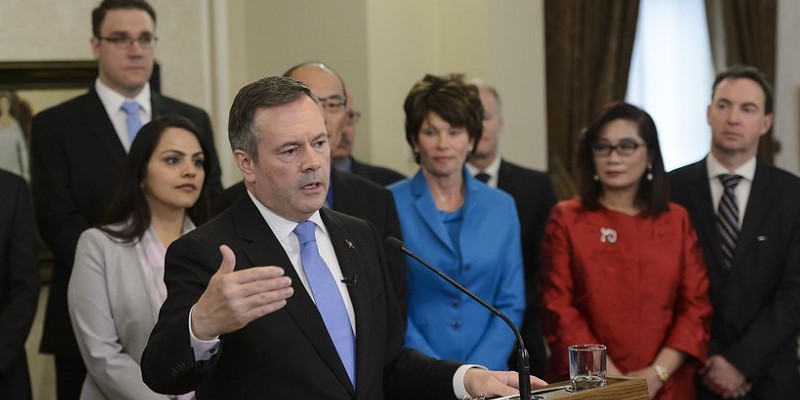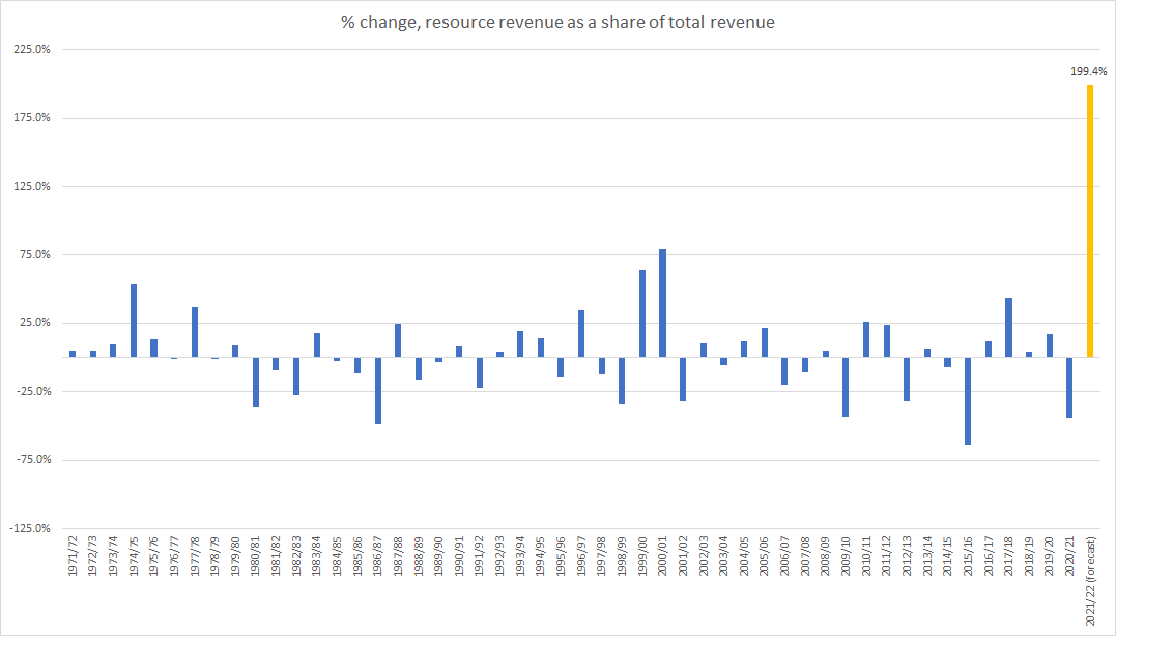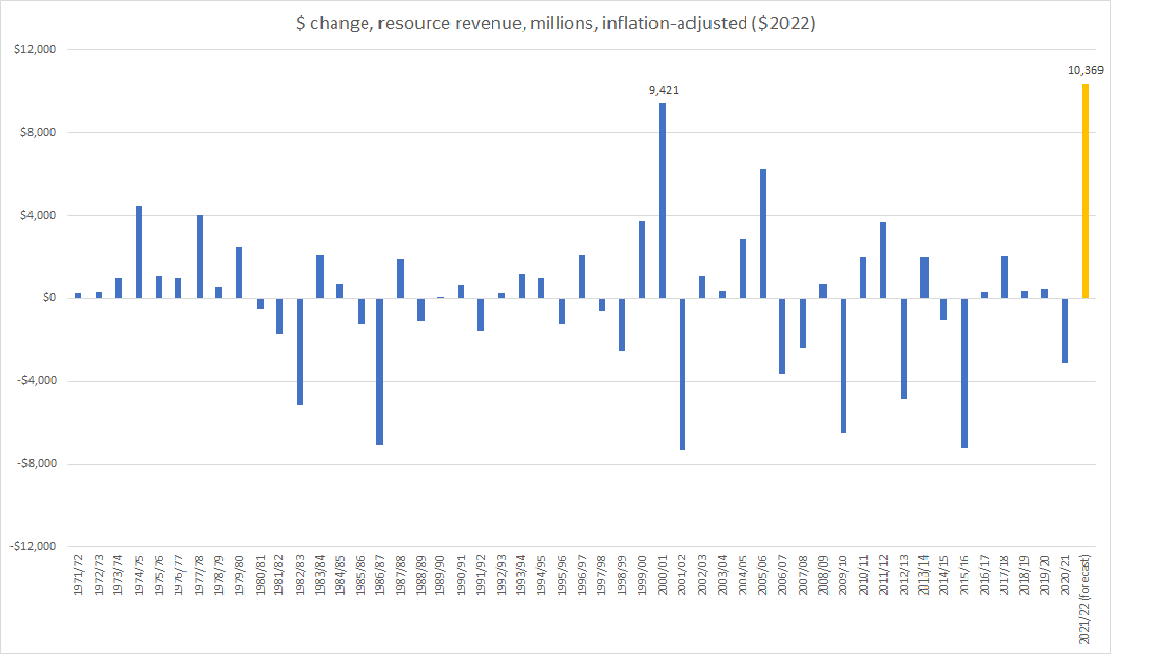Alberta’s resource revenue windfall largest on record

Alberta’s recent windfall in resource revenue, which was largely responsible for reducing the province’s budget deficit from $17.0 billion in 2020/21 to a projected $3.2 billion in 2021/22, is the largest on record since the government began reporting these data in 1970/71.

Specifically, resource revenue, which includes natural gas and oil royalties, is expected to increase from $3.3 billion in 2020/21 to $13.7 billion in 2021/22 (after adjusting for inflation). As shown in the first chart above, the $10.4 billion increase is the largest on record, and $1 billion more than the next largest increase ($9.4 billion), which occurred in 2000/01.

If we look at resource revenue as a share of total revenue—a measure economist and policymakers often use to gauge Alberta’s reliance on resource revenue—the increase is even more stark. In 2020/21, resource revenue represented 7 per cent of total revenues—then increased to 22 per cent in 2021/22. As shown in the second chart, that’s an annual increase of nearly 200 per cent—again, the largest increase on record.
While fiscal year 2021/22 is nearly over, resource revenue is expected to remain relatively high over the forecast horizon to 2024/25, contributing to surpluses over the next three years.
This provides the Kenney government with an incredible opportunity. Instead of continuing to spend onetime volatile resource revenue, which has created a boom-bust cycle where the province runs surpluses when times are good but turns to deficits once resource revenues inevitably decline, the government can save a share of resource revenue. By saving a portion of windfall, the province can create a rainy-day to help cover the shortfall when resource revenue inevitably declines in the future. In that way, Alberta can stabilize provincial finances for the long-term.
Given the record windfall, there’s never been a better opportunity to do so.

